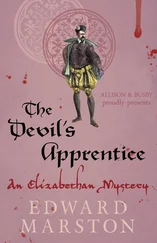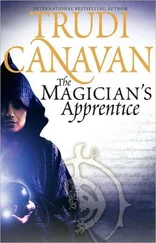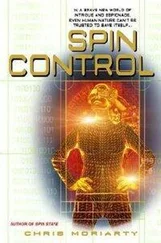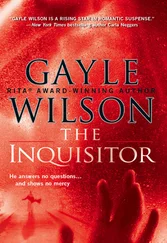“Shush,” Mrs. Kessler murmured, still stroking Mrs. Lehrer’s hair. “Shush!”
But Mrs. Lehrer pushed her hand away and stood up. “It’s all right,” she said in a dull, hollow voice that sounded like it was coming from somewhere deep underground. “I never would have been able to spend that money anyway. I’ve known for years there was no one left to send it to.”
Then she walked across the room and sat down at her sewing machine and picked up the next shirtwaist from the towering pile of piecework that was always there waiting for her.
The rest of them stared at one another with stunned, frightened expressions on their faces. Sacha could almost see the unasked questions hanging in the air. What was the woman going to do now that someone had stolen the very purpose of her life? And should they try to make her talk about it? Or was this one of those things in life that just got worse from talking?
Mrs. Lehrer was still at the sewing machine when they all crept miserably off to bed.
Sacha didn’t know how long he slept, but he woke up with a terrible fear twisting the pit of his stomach. It was dark. Outside the windows, Hester Street lay so still and silent that he knew it must be three or four in the morning.
What a nightmare he’d had! He’d been lost in a bleak and terrible darkness that stretched out hopelessly for all eternity. What horror to be trapped in such a place, never to laugh or love or to feel the warmth of friends and family! The worst thing of all had been the knowledge — though he couldn’t say how he knew it — that he hadn’t lost his life. It had been stolen from him. And the thief was walking free in the sunlight, wearing Sacha’s clothes and body, tricking Sacha’s family into loving him.
But it was only a dream after all! Bekah lay sleeping beside him; he could hear her breathing and make out the shape of her cheek in the faint light from the street lamp. His mother and father lay just beyond her. On his other side Grandpa Kessler was snoring away like a kettle at the boil.
Sacha sighed with relief and nestled into the thick feather bed. He was already half asleep when he saw a flash of movement in the shadows and heard the unmistakable sound of a footfall.
It must be Mordechai coming home late again, he told himself.
But Mordechai was already home. Sacha could hear him snoring over on his mattress by the door, a sprightly tenor accompanying Grandpa Kessler’s thundering basso. Besides, this shadow was smaller than Mordechai. And it had come in not through the door, but through the open window from the fire escape.
Sacha watched, paralyzed by fear, as the figure padded around the room. It seemed to be looking for something. It searched among the hooks along the wall that held the family’s scant clothing. It seemed to search by smell, not sight; it snuffled among the hanging clothes like a dog hunting for a scent. It pulled something out. A shirt, maybe. Sacha couldn’t see clearly and was too terrified to raise his head. then it started back toward the window.
Halfway there it stopped and wavered in the middle of the room as if it couldn’t decide what to do next. Then it turned toward the bed.
It was staring straight at Sacha now. He closed his eyes and tried to slow his breathing so that it matched the rhythm of the rest of the family sleeping on either side of him.
Silence.
Then stealthy, halting footsteps that came toward the bed and paused as the dybbuk leaned over him.
Its breath was cold enough to stop clocks. But its touch was colder still, as cold and soft and heartbreaking as the first winter snow on a newborn’s grave. Gently, gently, it ran a finger along his cheek. It touched his hair. It touched the hand that lay outside the blanket.
Then it was gone.
Sacha lay awake, silent and terrified, until the dawn broke through the windows and his mother rose to stoke the cook-stove. He washed and dressed with fingers more clumsy from fear than cold. He watched tensely as the rest of his family got up and dressed and took their hats and coats and mufflers off the hook … until he was quite sure that the only missing piece of clothing was his own second-best shirt.
CHAPTER TWENTY-THREE. Bull Moose
WE’RE GOING WHERE? ” Lily asked the next morning when Wolf gave the address to the taxicab. “What on earth are we going to investigate on Long Island? ”
“You don’t think there are magical criminals on Long Island?” Wolf asked, sounding amused. “Well, we’re not after criminals today, just advice. From the last honest man in New York … or at least the last honest man I know about.”
By the time they turned off of a quiet country road above Oyster Bay and rolled up a curving drive to a sprawling shingle-clad house shaded by vast oaks and copper beeches, Sacha had a pretty strong suspicion who Wolf’s last honest man was.
Any remaining doubt vanished when the cabby reined in his horse to make way for a flock of peacocks, two Irish wolf-hounds, a tame black bear, and a thundering cavalcade of boys, girls, and Shetland ponies playing the wildest game of Cowboys and Indians Sacha had ever seen in his life.
The children, the dogs, and one of the Shetland ponies escorted the visitors up the front steps of the house and onto the gracious porch that shaded the door. Wolf started to ring the bell, only to be stopped by a chorus of protests from the children.
“No, wait!”
“Let Bill do it!”
“Bill’s better than a doorbell!”
Bill turned out to be the pony — and with a little nifty trick-riding and a lot of raucous laughter, the kids got Bill maneuvered into place in front of the door and coaxed him into delivering a sharp rat-a-at-tat to the door with one iron-shod forefoot.
The door slammed open to reveal the unmistakable figure of Teddy Roosevelt.
“Good trick!” he cried. Reaching into his trouser pocket, he brought out a handful of sugar cubes and fed them to the delighted pony. “But your mother would never forgive me if I let you bring a horse into the house … so don’t tell her!”
TR was just about the most famous New Yorker in America and certainly the most popular. He came from an aristocratic family impeccable enough to earn him an automatic place at Maleficia Astral’s dinner parties. Worse still, he’d been born so rich that he’d never had to work for a dime. But somehow, in spite of it all, he was a real New Yorker.
People said it went back to his childhood, when he’d had such severe asthma that his father had driven him through the streets of New York all night, night after night, in order to coax enough fresh air into his lungs to keep him from suffocating. Whatever the reason, TR loved New York — and he loved ordinary New Yorkers of every color, creed, and nationality with a feeling so frank and genuine that they couldn’t help loving him right back.
When he’d been police commissioner, TR had been famous for his unnerving habit of disguising himself as a regular beat cop and wandering the streets of New York at all hours of the day and night in order to catch corrupt policemen in the act of taking bribes or collecting protection money.
“If you want to take out the garbage,” TR had pointed out with his usual bluntness, “you have to be willing to get your hands dirty!”
At the moment his hands were very dirty indeed — but only because he was holding a partially dismantled worm farm.
“Come on in!” he told them after the gang of kids, dogs, and pony had trooped noisily through the hall and out the back door.
He shook Lily’s hand first. “The youngest Astral, I believe. Isn’t the name Lily?”
Then he gave Wolf a hearty slap on the back. “How’d you know I was back from Africa? It’s supposed to be a secret, you rascal.”
Читать дальше












